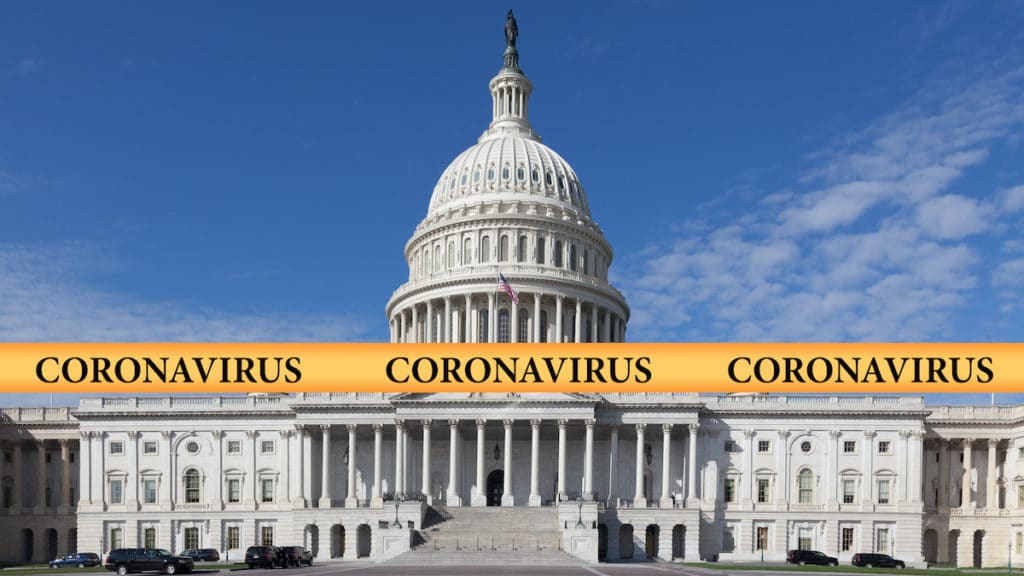

When I write enough columns with the same underlying point, I sometimes create a special page to highlight the theme, such as the “Bureaucrat Hall of Fame” and “Poverty Hucksters.”
I may have to do something similar for people who assert that America’s response to the coronavirus has been hampered because the federal government is too small.
For instance, Dana Milbank wrote in The Washington Post last month that “anti-government conservatism…caused the current debacle with a deliberate strategy to sabotage government.”
Ironically, the nations he cited for their successful approach – Singapore, South Korea, and Taiwan – all have a much smaller burden of government spending than the United States (US).
Which actually supports my argument that bigger governments are less effective and competent.
But evidence doesn’t seem to matter to some journalists.
One of Milbank’s colleagues, Dan Balz, has just authored a long article that regurgitates the assertion that there’s been “underinvestment” in the federal government.
The government’s halting response to the coronavirus pandemic represents the culmination of chronic structural weaknesses, years of underinvestment and political rhetoric that has undermined the public trust… The nation is reaping the effects of decades of denigration of government and also from a steady squeeze on the resources needed to shore up the domestic parts of the executive branch. This hollowing out has been going on for years as a gridlocked Congress preferred continuing resolutions and budgetary caps… The question is whether the weaknesses and vulnerabilities exposed by the current crisis will generate a newfound interest among the nation’s elected officials — and the public — in repairing the infrastructure of government. …“We don’t want to invest in the capacity of government to get the job done,” Kettl said. …said David E. Lewis, a political science professor at Vanderbilt University…“We’re seeing a government that is suffering now from a long period of neglect that began well before this administration. And that neglect has accelerated during this administration.”
What’s especially remarkable is that the article cites the government’s lack of testing capacity as evidence of “underinvestment.”
Over these years, there have been a series of major government breakdowns that helped shake confidence in government’s competence. …The pandemic has forced another critical look at government’s competence. …more tests might have helped contain the spread. It is the case now as businesses look to reopen but cannot assure safety for workers or their communities without the widespread availability of tests, which so far does not exist.
Yet the bureaucracies with responsibility for testing – the Food and Drug Administration (FDA) and Centers for Disease Control (CDC) – have received big budget increases.
Was that money well spent?
Hardly. Not only have they failed in their mission, their red tape and inefficiency have hindered the private sector’s ability to develop and deploy tests.
Notwithstanding all this evidence, Balz wants readers to believe that people don’t have faith in government because of hostile rhetoric from politicians.
Marc Hetherington, a professor at the University of North Carolina, said the public conversation about government began to shift with the election of Ronald Reagan in 1980. …“What changed with Reagan and the decades since is that the conversation moves away from what government ought to do to government is incompetent to do things,” he said. …Democratic politicians have engaged in some of the same kind of thing. “Every candidate has campaigned on a bureaucracy-bashing theme,” Nabatchi said. “That message has gotten through to affect people’s confidence in government.”
The alternative explanation, needless to say, is that people don’t have confidence in the public sector because government has a long track record of mistakes and incompetence.
But I guess that’s merely my opinion.
So let’s instead close today’s column with some hard data.
Here’s a chart I shared last month while debunking an article by George Packer for The Atlantic. Hhe claimed we have “a federal government crippled by years of…steady defunding”.
It shows that federal spending has tripled since 1980. And that’s after adjusting for inflation!
Which led me to observe that, “The bottom line is that I can’t figure out whether to be more dismayed that journalists are innumerate or that major publications apparently don’t have fact checkers.”
That same sentiment obviously applies to Dan Balz and the Washington Post.
P.S. While Balz and Milbank were guilty of avoiding numbers, The Washington Post doesn’t have a great track record when its journalists try to use numbers. In other words, maybe the problem is bias rather than innumeracy.







